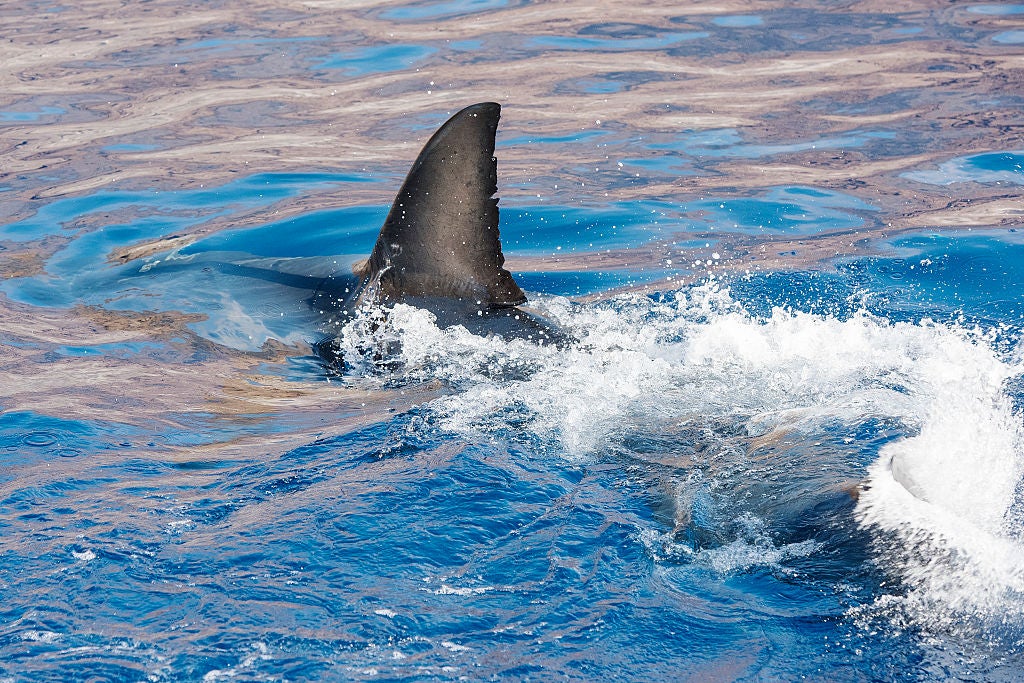On Tuesday, a remarkable incident unfolded on the shores of Orleans, Massachusetts, when local authorities responded to an unusual call concerning a great white shark that had washed ashore. The Orleans Police Department took to social media to share the unexpected event, noting that the incident was illustrative of the unpredictable nature of police work. The shark, an apex predator known for its size and ferocity, presented a unique and challenging situation for the department, which ultimately required the assistance of a local tow truck to remove the massive creature from the beach.
Highlighted in the police department’s post were several photographs capturing the shark’s considerable size and the spectacle of it being transported upside down on the back of the tow truck. The visual portrayal showcased the immense scale of the great white, with its weight being potentially upwards of 2.5 tons, or about 4,500 pounds. This moment not only reflected the distinctive challenges faced by law enforcement in coastal communities, but also served to remind the public about the sheer magnitude of these marine animals that inhabit local waters.
Great white sharks are a species that has captivated the imagination of many, with National Geographic reporting that their average lifespan extends beyond 70 years and they can grow up to 21 feet in length. Their significant weight and length categorize them as one of the largest predatory fish in the ocean, further underscoring the gravity of the situation as the police department dealt with the deceased shark. While it was clear that the shark was no longer alive, the circumstances surrounding its death remain unspecified, adding an element of mystery to the incident.
The Orleans Police Department’s lighthearted commentary noted that Sergeant Elliott, who was tasked with following the tow truck, was fortunate not to have to engage in a struggle with the great white. This remark added a touch of humor to the otherwise serious situation, highlighting the unpredictable nature of law enforcement duties, especially in coastal areas where encounters with wildlife can lead to unexpected scenarios. The post resonated with local residents, drawing attention to the oddity of the situation and emphasizing the role of police in managing various unusual incidents in their community.
Furthermore, this incident has raised awareness about the presence of great white sharks along the New England coast, stirring conversations about marine life and ecological health in the region. The discovery of such a large marine predator washed ashore invites speculation regarding the animal’s health and environmental factors that may have contributed to its death. While no definitive answers were provided concerning the shark’s demise, the occurrence serves as a poignant reminder of the fragility of marine ecosystems and the interactions between wildlife and human communities.
In conclusion, the unexpected arrival of a great white shark on a Massachusetts beach provided both a whimsical and thought-provoking moment for the Orleans Police Department and the local community. As authorities navigated the challenges of this peculiar situation, it sparked interest and dialogue surrounding marine life, conservation, and the inherent unpredictability of nature. The event encapsulates the essence of life in coastal areas, where interactions between humanity and the vast ocean can yield surprising encounters, leaving people fascinated and sometimes alerted to the complexities of the natural world.

